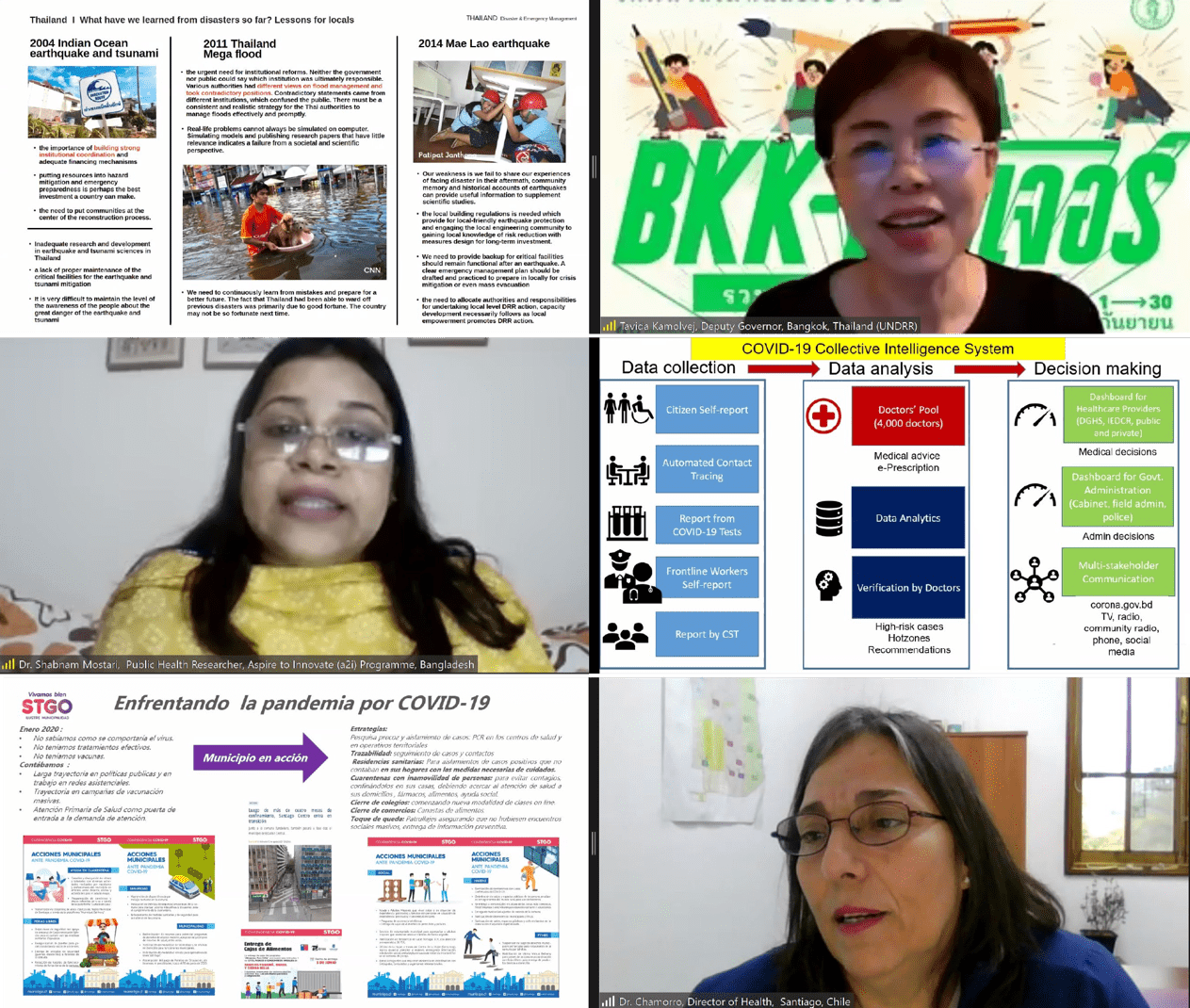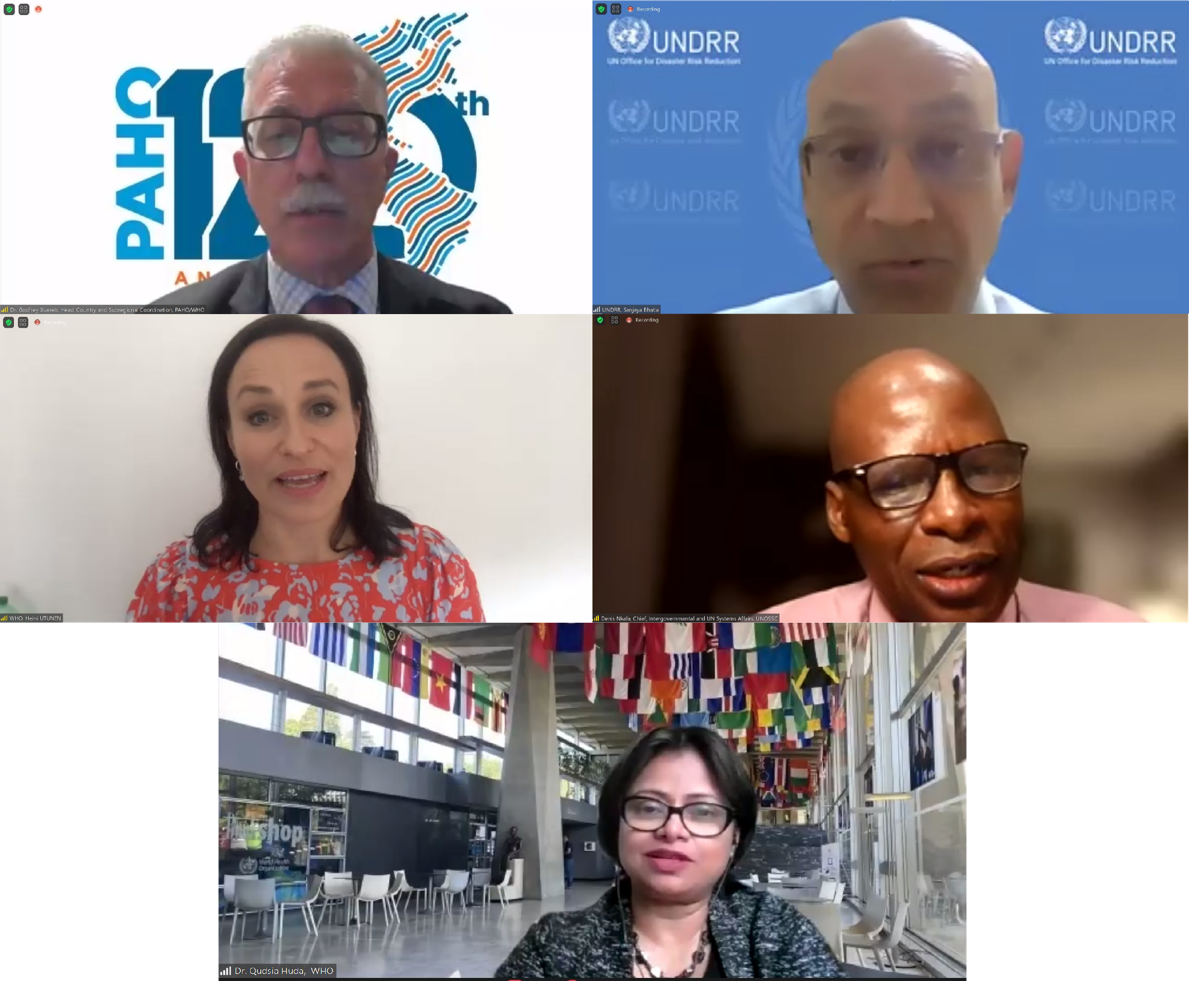Cities are at the Forefront of Transitioning to Complex Risk Management
UNDRR GETI, UNOSSC, PAHO & WHO conclude joint online training programme with South-South Cities Exchange
Cities around the world have faced more challenges since the start of the COVID-19 pandemic, which exacerbates vulnerabilities and has a tremendous impact on urban health and well-being. The COVID-19 pandemic reveals the new reality: cities are living with uncertainties and facing much more complex risks. To transition to resilient and sustainable urban futures, cities need to evolve to reflect the interconnectedness of people, the planet and prosperity. Cities must transition to systematic risk governance with an enhanced understanding of systematic risks.
Against this backdrop, the United Nations Office for Disaster Risk Reduction Global Education and Training Institute (UNDRR GETI), United Nations Office for South-South Cooperation (UNOSSC), Pan American Health Organization (PAHO) and World Health Organization (WHO) co-organized a four-week certificate training programme from 23 August to 13 September 2022, dedicated to sharing experiences in transitioning to managing complex risks and building a resilient future.

On 13 September, the fourth and closing session — South-South cities exchanges on transitioning to living with COVID-19 and managing complex risk scenarios — featured experts, national and local authorities from Thailand, Bangladesh and Chile. The panelists shared their innovative practices and lessons learned from the systematic impact of the pandemic and complex risk management amidst extreme weather events and climate emergencies.
Such mutual learning and support allow city stakeholders across countries to collaborate and take collective action to reduce risks. It is crucial to strengthen the South-South and triangular cooperation institutional capacity and ecosystem in the Global South for continuous learning, knowledge sharing and capacity building among cities, as well as for a sustainable and resilient future in the context of COVID-19 and other global crises.
On behalf of the co-organizers, Dr Qudsia Huda, Head, Disaster Risk Management and Resilience, WHO, highlighted in her closing speech: “Complex risk management approach should be able to protect the workforce and the health infrastructure in the cities through a whole of society approach. This warrants a robust and risk informed governance with a strong leadership at all levels. Governors/mayors play that vital role in the cities, and we count on you.”
This joint-training is held for the third consecutive year following the success of the first edition focusing on responding to COVID-19 pandemic in 2020 and the second edition focusing on building back better from the pandemic in 2021. Over 1,300 people from 590 cities and districts of more than 140 countries and territories around the world participated in this year’s joint training, with simultaneous interpretation provided in 6 languages including English, Arabic, Chinese, French, Portuguese and Spanish.


